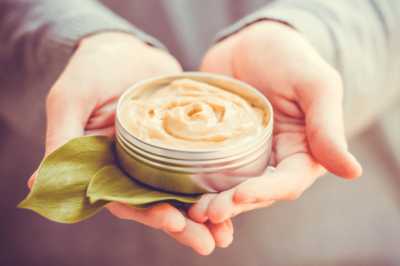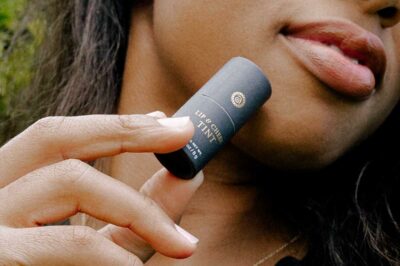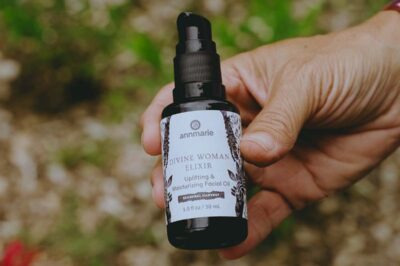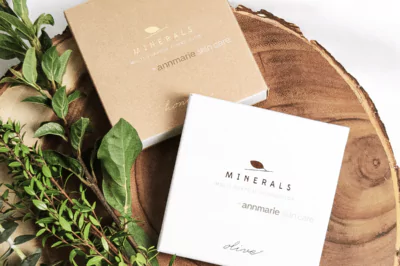Today we want to share something with you from Peter Osborne, who is often times referred to as “The Gluten Free Warrior” because of work that’s centered around helping people with painful chronic degenerative and autoimmune diseases, with a primary focus on gluten sensitivity and food allergies. Because of this work, he is one of the most sought after funtional medicine doctors in the world.
Dr. Osborne wrote a book called No Grain, No Pain, which is the culmination of his years of practive and research, after seeing patient after patient struggling with everything from rheumatoid arthritis, lupus, psoriasis, migraine headaches, hypothyroid disease, to fibromyalgia. His book gives you a 30-day diet to eliminate the root cause of chronic pain.
Click Here to Learn More About Dr. Osborne’s Book
He gave us permission to post this article he wrote about gluten in makeup and skin care products. The original article was posted here.
How to Avoid Gluten in Makeup and Skin Care
For those with gluten intolerance, sensitivity, or allergy, hidden forms of gluten in cosmetics and hygiene products can cause major health issues. After being diagnosed, most people look toward removing the toxic protein from their foods. In essence, removing obvious sources like bread, pasta, cereal, pizza, bagels, etc. For many, the diet change can seem overwhelming, and looking at hidden glutens in cosmetics or hygiene products is not even a thought yet.
A recent research report published by the National Institute for Health Sciences in Japan accumulated data from 2009 to 2013 and found 1900 patients who reported allergic reaction after using a soap containing hydrolyzed wheat protein. The diagnosis for these individuals was – Wheat Dependent Exercise Induced Asthma (WDEIA).
This is not the first research report on the topic. Other studies have identified asthma in hairdressers exposed to hydrolyzed wheat protein as well.
References:
- Teshima R. Food allergen in cosmetics. Yakugaku Zasshi. 2014;134(1):33-8.
- Airaksinen L, Pallasaho P, Voutilainen R, Pesonen M. Occupational rhinitis, asthma, and contact urticaria caused by hydrolyzed wheat protein in hairdressers. Ann Allergy Asthma Immunol. 2013 Dec;111(6):577-9. doi: 10.1016/j.anai.2013.09.025.
Check Your Makeup and Hair Care Products
Asthma and inflammatory skin conditions (dermatitis) are common in those who have been diagnosed with gluten sensitivity. If you react to gluten, it is strongly advised that you look at the ingredients on cosmetics, soaps, and hair products. The following are some of the most common items that people tend to overlook:
- Shampoo
- Toothpaste
- Lipstick
- Facial Cleansers
- Lotions
- Shaving gels
- Hair spray
- Soap
These products can contain grain and gluten based ingredients that you should be aware of so that if necessary, you can switch to a new product line. But it’s not always obvious which ingredients in your products contain gluten. If you want a worry-free experience, take a look at our gluten-free products in our store, which includes various options for your daily routine.
5 Sneaky Terms You Shouldn’t Overlook
- Wheat germhat
- Hydrolyzed wheat protein
- Hydrolyzed vegetable protein
- Avena sativa (oats found commonly in lotions)
- Triticum aestivum (another name for wheat)
You can also check out our more comprehensive list of terms that contain gluten here.
I have see patients have reactions because of inhaled gluten from hairsprays and from kissing a significant other wearing lipstick with gluten as an ingredient. If you are looking for a substitute skin moisturizer, try coconut oil or jojoba oil. If you are looking for cosmetics without hidden gluten, listen to this interview first. Remember, that no matter what product you are using, the manufacturer retains the right to change the ingredients without informing you, so the most important walk away is simply this – READ THE LABELS before you buy!








I would like to better understand why we should avoid gluten in our cosmetics, while we don’t need to worry about carageenan in cosmetics? Both are ingredients that irritate the colon. I read in another part of your blog that caarageenan in skin care is not a problem. Why is this not also true for gluten, then? Many thanks and best regards, julie
I am allergic to fragrance and have pretty sever fructose malabsorption! Thank you for this list!!